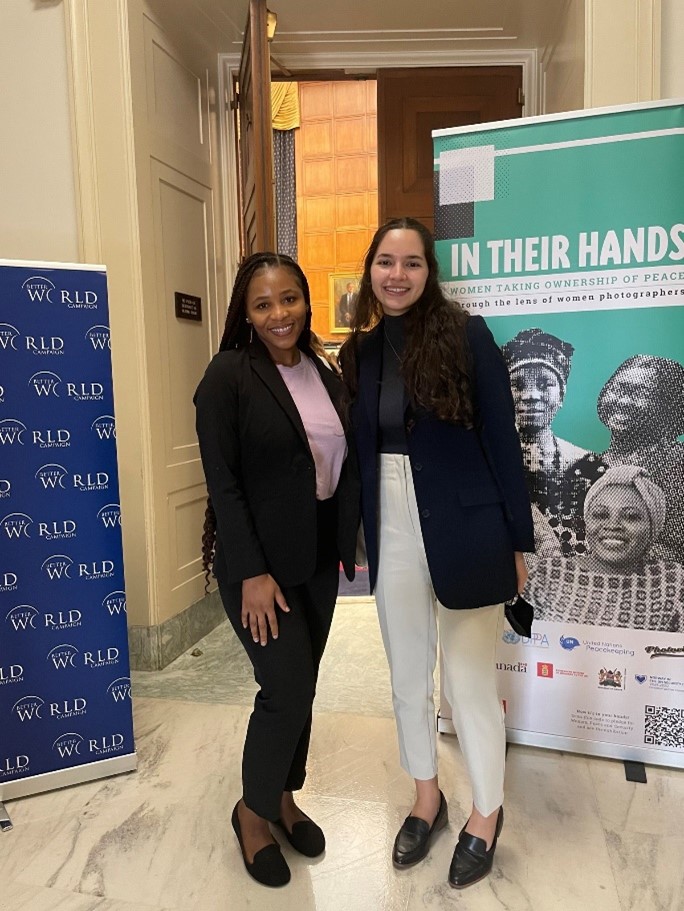Rooting Knowledge in Praxis
Shakiba Mashayekhi August 30, 2022
Transferring from community college to the University of California at Berkeley to study Peace and Conflict, Philosophy, and Arabic was not only a transformative experience, but a surreal one. Pursuing a university degree was neither a financially logical decision, nor common practice within my family and amongst relatives; however, reaching that moment was precisely the reason my family and I left everything we knew in Iran for California. The more I participated in my courses and regularly attended office hours of world-renowned professors, the more a clarity set in that I was both immensely privileged to be at Berkeley but equally under the pressures of being a low-income, first-generation, immigrant transfer student. This polarity was not unique to me, but it was a position that required constant navigating and grappling with. I quickly realized that curricular activities, attending campus events, or special lectures were not enough and that it was important for me to root my knowledge in praxis.

My acceptance into the first-ever university-based human rights investigations lab at the Human Rights Center at Berkeley Law, served as an intellectual home where I learned how to conduct open source investigations and received mentorship while investigating potential war and atrocity crimes globally. Throughout my 3 years as both a lab member and a student manager, I collaborated with students from diverse disciplines and investigated alleged violations in over 13 countries, including a universal jurisdiction case on the use of chemical weapons in Syria. Under indispensable mentorship from Dr. Alexa Koenig, Lindsay Freeman, Andrea Lampros, and Stephanie Croft I had the opportunity to theoretically and practically engage on human rights, technology, accountability, and fact-finding. Moreso, working closely alongside my mentors allowed me to learn the variety of ways one can engage at the intersection of human rights and technology. Equally important was a realization that working at the forefront of these fields requires ongoing collaboration across disciplines. For example, under the leadership of Lindsay Freeman, the Human Rights Center brought together a group of lawyers and law students with diverse disciplinary backgrounds to submit a formal request to the Office of the Prosecutor for the International Criminal Court (ICC) to include Russia’s 2015 and 2016 cyberattacks targeting Ukraine’s critical infrastructure into its investigations of war crimes. Supporting this historic submission was a meaningful experience as I learned from the team’s expertise about relevant legal mechanisms and laws while at the same time witnessing the team seek to creatively advance international law for accountability and protection purposes.

With this background and a sense of inspiration, joining the Scoville Fellowship was an excellent next step because of the fellowship’s focus on policy and research related to international peace and security. Under the leadership of Lisa Sharland and the mentorship of my colleagues—Julie Gregory and Ilhan Dahir—at the Stimson Center, I have had the opportunity to supplement my knowledge by learning about other mechanisms and approaches to protecting civilians in conflict. This has included meeting with experts such as the Under-Secretary-General for Peace Operations at the United Nations, Mr. Jean-Pierre Lacroix, to better understand policy priorities and challenges of an international organization such as the UN. The fellowship and the Stimson Center have also provided me with an opportunity to better understand the nuances of protection efforts through research on the humanitarian and human rights efforts of the United Nations Assistance Mission in Afghanistan.

Similarly, throughout my experience as a Scoville Fellow, I’ve had the opportunity to become acquainted with a community dedicated to engaging with complex issues within the field of atrocity prevention. At the Stimson Center, I’ve joined the Atrocity Prevention Study Group founded by Jim Finkel where leading experts discuss research, methodologies, and updates on related topics. The Stimson Center has also connected me with external working groups such as the Washington Working Group on the ICC and the Prevention and Protection Working Group by the Friends Committee on National Legislation. These connections have been important to my early career growth as I’ve gained exposure to both developments in atrocity prevention and accountability, as well as how members of think-tanks, NGOs, CSOs, and those in the legal sector approach and collaboratively work through complex questions.
My exposure to think-tanks, the United Nations, and other NGOs has been a highlight of my fellowship. The reality is that efforts by a variety of actors need to be coordinated and well-understood to rise to the challenge of responding to crises across the world. The fellowship has given me the latitude, support, and community needed to learn in depth about the dominant, alternative, and creative approaches by key stakeholders seeking to enhance protection mechanisms and efforts. This experience has equipped me with a more well-rounded skill set and knowledge base that brings me both humility and excitement with which to continue to engage in international law, peace, and security.
Shakiba Mashayekhi is a Spring 2022 Scoville Fellow at the Stimson Center.
